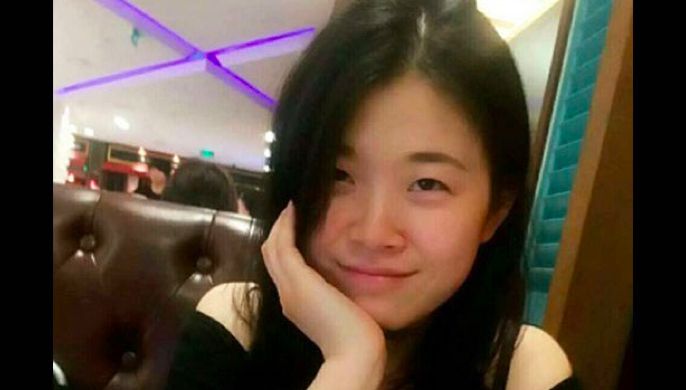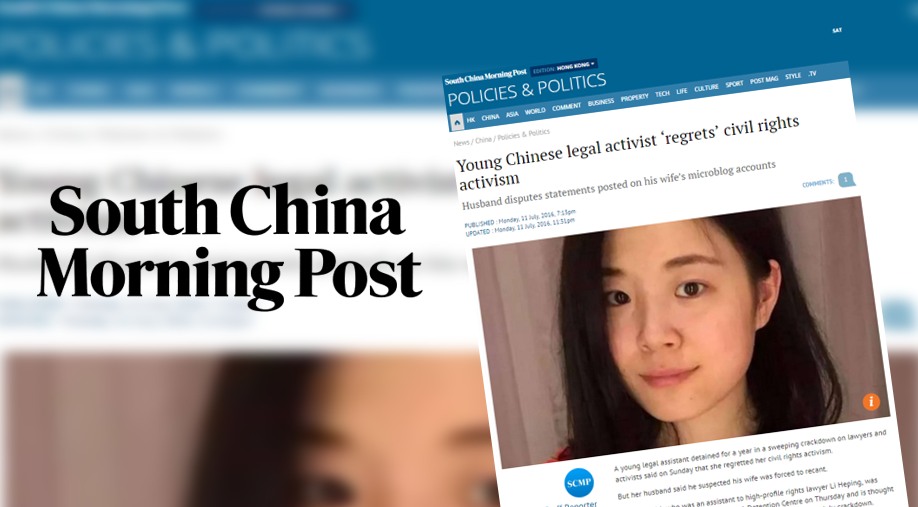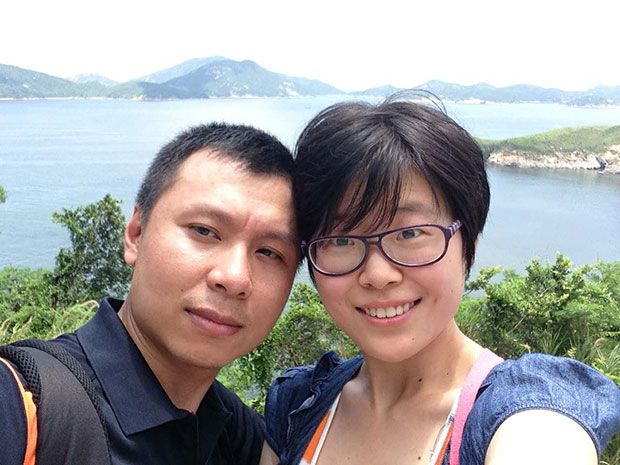Any journalist worth their salt, anywhere in the world, is hungry. They live for the scoop. In April 1957, before the profession was fatally poisoned in China by Mao’s Anti-Rightist Campaign, Zhang Liqun (张黎群), a pioneering editor at China Youth Daily, told his colleagues at a Beijing journalism conference that newspapers — rather than being “loudspeakers and bulletin boards” — should “fight to get there first.”
If you do get there first, of course, you can claim professional bragging rights in the form of a byline on the breaking story.
Which is why we should find it perplexing that Hong Kong’s English-language South China Morning Post has attributed to a unnamed “staff reporter” a July 11 report based on an exclusive phone interview with Zhao Wei (赵威), a young legal assistant detained on July 9, 2015, and held incommunicado ever since.

Surely, this is a substantial scoop, no? Moreover, the story is very timely considering Zhao Wei was reported to have been released on bail the week before and permitted to remain at her family home in Henan province.
Here the wonderment deepens. Shortly after her supposed release, Zhao Wei made several posts to her microblog account saying she regretted her work with Li Heping, a prominent human rights lawyer who remains in custody. But no one, not even Zhao’s husband, You Minglei, has yet been able to confirm her release or comment on her condition.
Somehow, though, Zhao managed to speak to the Post, or the Post managed to speak to Zhao. On whose phone? From where?

For serious journalists, this would be a unique opportunity to raise questions both human and probing: Have you been able to meet with a lawyer? (she hasn’t); Are you currently being held against your will?; Have you been in touch with your husband?; What would you say to him right now?
But the phone exchange with the Post seems to have focused on shoring up aspects of the official narrative that have met with justified doubt — such as the authenticity of Zhao’s online repentance.
Speaking to the South China Morning Post on the phone on Sunday, Zhao said she wrote the statements on her accounts.
“I have come to realise that I have taken the wrong path. I repent for what I did. I’m now a brand new person,” she said.
Zhao, the Post reported, said she was “back at her home in Henan province and was staying with her parents.” Again, cherry-picked facts that seem to corroborate the official story.
Now, several days later, things are even fishier. Tom Phillips reports in theGuardian today that Zhao’s husband has attempted to visit her at her family home in Henan, and that “he found the two-storey building deserted.”

You Minglei told the Guardian he had doubts about the authenticity of the supposed interview by the Post. “I believe that Zhao Wei does not have a mobile phone or a computer with her,” he said, “and she would not have the contact number for the South China Morning Post.”
The Guardian noted that the Post “did not say how the interview was set up or conducted.”
It’s my understanding from people at the Post that senior brass have also refused to explain to their own journalists exactly how the “interview” was arranged. This raises very serious questions about the newspaper’s commitment to editorial independence just seven months after its new owner, Alibaba chairman Jack Ma, responded to concerns with a simple, “Trust us.”
It’s not enough that the Post tried to hedge the piece with token skepticism — denoted, for example, with a pair of speech marks in the headline: “Young Chinese legal activist ‘regrets’ civil rights activism.” The paper allowed Zhao’s husband to be the voice of skepticism, while it maintained the fiction that this was “an interview.”
This unfortunate story looks eerily like the expansion of a development we witnessed earlier this year, as Hong Kong-based Phoenix Television, a non-government owned broadcaster, ran exclusive “confessions” by several local booksellers facing prosecution in China. These clearly coerced “confessions” — one bookseller has said already that his was scripted — have been a favoured tool of fear under Xi Jinping, with an array of criminal suspects appearing on China’s state broadcaster, CCTV.
Presumably, Chinese authorities have favoured the non-government Phoenix TV this year because they recognise appearances on state-run media are harder to sell to a skeptical public as voluntary acts.
Will the South China Morning Post now open itself up to moonlighting as a pawn of the mainland authorities in sensitive political cases? Will it allow itself to become a cog in China’s mea culpa machine?
There are still many hard-working, hungry reporters at the Post. The paper’s top editors owe it to those reporters to come clean about how this decision was made, and to offer real assurances that professionalism and credibility are the values at the top.
Speaking as a Post reader, I hope the top editors also recognise that the public won’t be deceived by charades like this one, which end only by discrediting the very facts they try to advance — and by damaging the credibility of the paper in the process.
The Post must stay hungry for the real reporting, and resist the pressure to become a loudspeaker and a bulletin board for powerful interests across the border.
